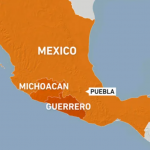The Canadian government has announced significant changes to its temporary residence programs in a bid to better manage the increasing number of temporary residents and ensure the integrity of its immigration system.
In a Thursday news release, the government revealed plans to reduce the intake cap for international student study permits by 10 per cent starting in 2025.
This reduction will lower the number of study permits issued from 485,000 to 437,000, with the cap maintained through 2026.
Additionally, stricter eligibility requirements for work permits will be introduced to align with Canada’s evolving economic and humanitarian needs.
An announcement by Immigration, Refugees, and Citizenship Canada stated, “Today, we announced changes to Canada’s temporary residence programs to better manage the volume of temporary residents, uphold the integrity of our immigration system, and protect vulnerable people.”
The reforms are part of a broader strategy aimed at balancing Canada’s immigration policies with the country’s shifting demographic and labour needs.
A key focus of the changes is the Post-Graduation Work Permit Programme, which will now be more closely tied to labour market demands.
Work permits will be restricted to spouses of master’s degree students enrolled in programs lasting at least 16 months, as well as to spouses of foreign workers employed in managerial or professional roles, or in sectors facing labour shortages.
These changes come as Canada continues to refine its immigration policies in response to growing concerns about system sustainability and economic challenges.
The IRCC has also introduced new measures to strengthen the integrity of its asylum system, including partial visa requirements for Mexican nationals and enhanced fraud detection mechanisms.
In a previous announcement in January 2022, the Canadian government had already indicated its intention to impose a national cap to control the intake of international students.
The new measures announced this week are seen as a continuation of those efforts, as Canada seeks to maintain a sustainable immigration system while addressing the country’s workforce and population growth responsibly.











